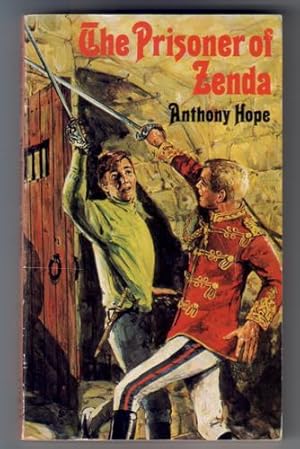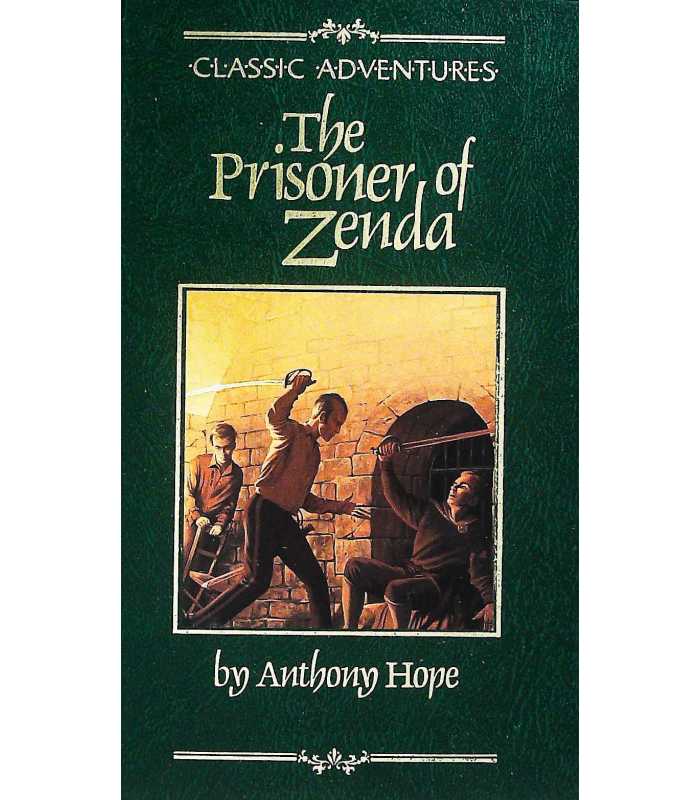

This is a 100 minute full cast adaptation of the classic, and archaic novel.

I doubt if feminism was a word in the common lexicon when Anthony Hope wrote his novel so there are no decent roles for the women of the fictional Germanic kingdom of Ruritania, except the countess Flavia, a love struck plot device. So what can we make of this radio adaption? I wonder if Prisoner of Zenda has been afforded ‘classic’ status and been adapted for film and television so much, not because it rises above the pulp trappings of other novels printed around the same time but because it has a interesting and evocative title. Sometimes they’re the best thing about it. Sometimes titles are so memorable, so vivid you feel know the story already. Starring Julian Glover, Nigel Stock and Martin Jarvis.

CHAPTER 3- A Merry Evening with a Distant Relative.DailyAudio: reviews and recommendations on easy to find audio books.CHAPTER 2 - Concerning the color of Men's Hair.CHAPTER 1- The Rassendylls-With a Word on the Elp.In the end, the King is restored to his throne - but the lovers must part. There are complications, plots, and counter-plots, among them the schemes of Michael's mistress Antoinette de Mauban, and those of his villainous henchman Rupert of Hentzau, and Rassendyll falling in love with Princess Flavia, the King's betrothed. When Michael has Rudolf abducted and imprisoned in the castle in the small town of Zenda, Rassendyll must impersonate his double at the coronation. The novel seems sympathetic, however, with those who would support the dissolute despot. Michael is regarded as champion of Strelsau's working classes, both the proletariat and the peasants, and of what Hope refers to as the criminal classes. Michael has no legitimate claim to the throne, because he is the son of their father's second, morganatic marriage: there are hints, from his swarthy appearance and Rassendyll's taunting him as a 'mongrel', that he may be partly Jewish. The political rival to this absolute monarch is his younger half-brother, "Black" Michael, Duke and Governor of Strelsau, the capital. Rudolf Elphberg, the crown prince, is a hard-drinking playboy, unpopular with the common people, but supported by the aristocracy, the Catholic Church, the army, and the rich classes in general. Rudolf Rassendyll, younger brother of the Earl of Burlesdon and (through an ancestor's sexual indiscretion) a distant cousin and look alike of Rudolf V, the soon-to-be-crowned King of Ruritania, a "highly interesting and important" Germanic kingdom somewhere imprecisely between the German and Austrian Empires. The narrator is twenty-nine year old the Hon.

The villainous Rupert of Hentzau gave his name to the sequel published in 1898, which is included in some editions of this novel. The books were extremely popular and inspired a new genre of Ruritanian romance, including the Graustark novels by George Barr McCutcheon. The king of the fictional country of Ruritania is abducted on the eve of his coronation, and the protagonist, an English gentleman on holiday who fortuitously resembles the monarch, is persuaded to act as his political decoy in an attempt to save the situation. The Prisoner of Zenda is an adventure novel by Anthony Hope, published in 1894.


 0 kommentar(er)
0 kommentar(er)
